The plants you choose around your pool can greatly influence its overall aesthetics, not only that the wrong plants can negatively affect your pool and the amount of effort you have to put in to clean it so, it’s important to choose the right ones. We’ve compiled some tips to help you choose the best plants for the pool.
Plan Your Plants at the Same Time as Your Pool
Rather than waiting until your pool is in the ground, it’s better to choose your plants when in the design phase. This enables you to make the most of the room you have to work with and can give you a visual idea of the finished product, you can organize your plant placement to give you the best result.
Choose Pool Friendly Plants
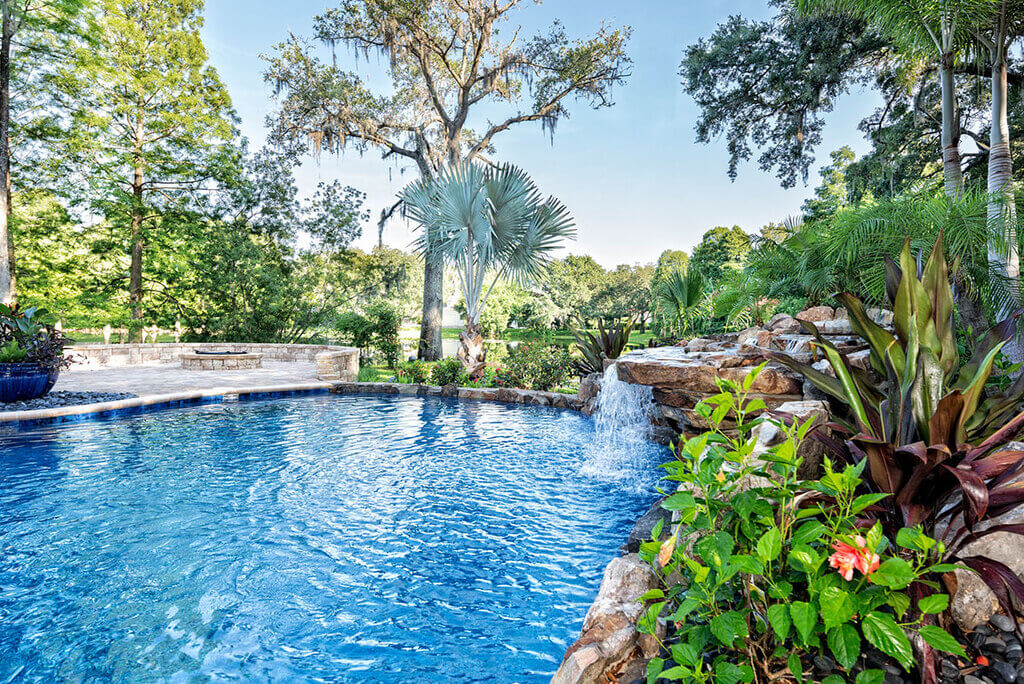
The plants you choose must be pool friendly. Why? Well, many plant and tree varieties shed leaf litter which will inadvertently end up in your pool. Not only that, many plant types cannot withstand exposure to saltwater or chlorine. Choosing just any plants without investigating their tolerability to pool environments can see them struggling to grow or worse, die.
Look for plants that can endure winds, be splashed periodically with chlorine or salt, and can grow in semi-shade as well as full sun. The conditions of a pool area are generally merciless with high humidity levels and relentless reflection from the sun, your plants need to be tough to survive. Pool-friendly options are low maintenance and don’t require regular pruning.
Picking the correct plants at the beginning rather than just choosing ones you like can save you money and time but if you’re not a green thumb you may struggle to identify pool-friendly plants. Here are some things to consider when making your selection:
Plants with Large Robust Leaves
Choose plants with large leaves that don’t shed excessively rather than small-leafed ones. Leaf litter makes your pool dirty and if they are not removed soon after falling into the water, it can clog up your skimmer basket and start sinking to the bottom and decomposing, once this happens it can throw your pools pH levels off and if not rectified, it can turn your pool water cloudy. Clearing cloudy water requires extra chemicals and time to fix and if it happens often, it can become a laborious chore that you will quickly loathe.
Choose Pool Plants to Suit the Design Style of Your Home
Here are some styles to give you a little inspiration
Palm Springs Design
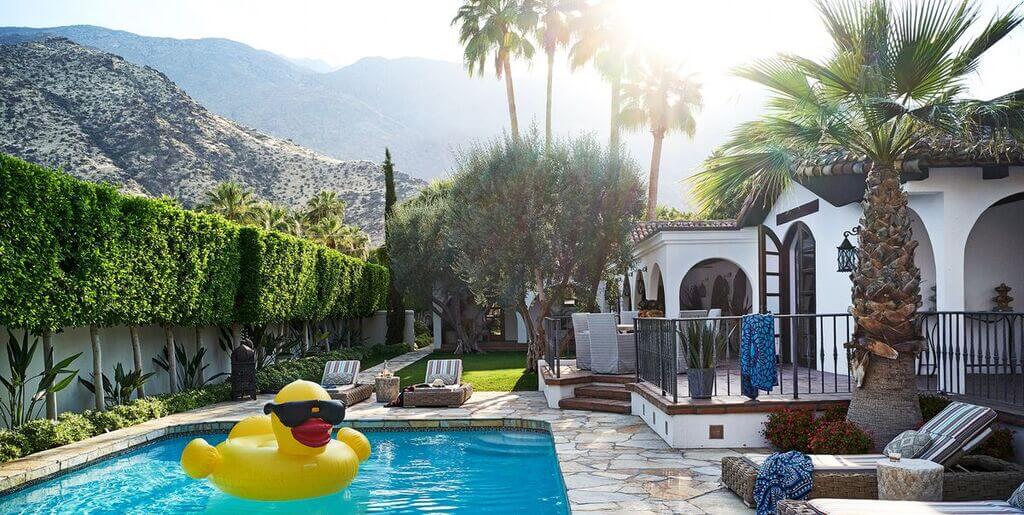
If you’re wanting a modern, trend-inspired pool patio, you can’t go past the Palm Springs look. Think minimalistic plant placement featuring cacti and succulents. These plants are sturdy and can tolerate being placed near a pool with little to no impact on their well-being. Don’t plant them directly near the water or in high-traffic spots as they can cause injury to swimmers or walkers. Many have sharp spikes that can puncture the skin.
A Touch of Native Australia
Looking for some home-grown plant choices? Native plants are indigenous to Australia and flourish in our climate. Here are some great choices:
- Bird’s nest fern (Asplenium Australasian)
- Cycad (Macrozamia)
- Grass tree (Xanthorrhoea australis)
- Syzygium
Tropical Oasis Plants
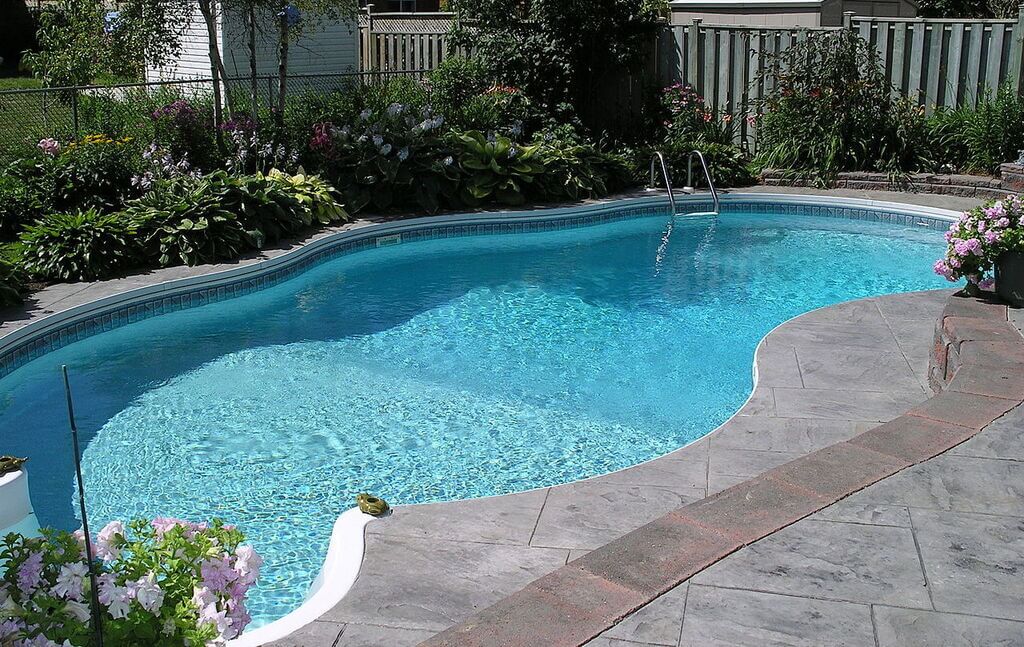
Nothing makes you feel like you’re on holiday more than a swimming pool nestled in a lush tropical garden. Here are some fantastic choices to replicate just that:
- Giant bird of paradise
- Hibiscus
- Cordyline
- Agave
Contemporary Style
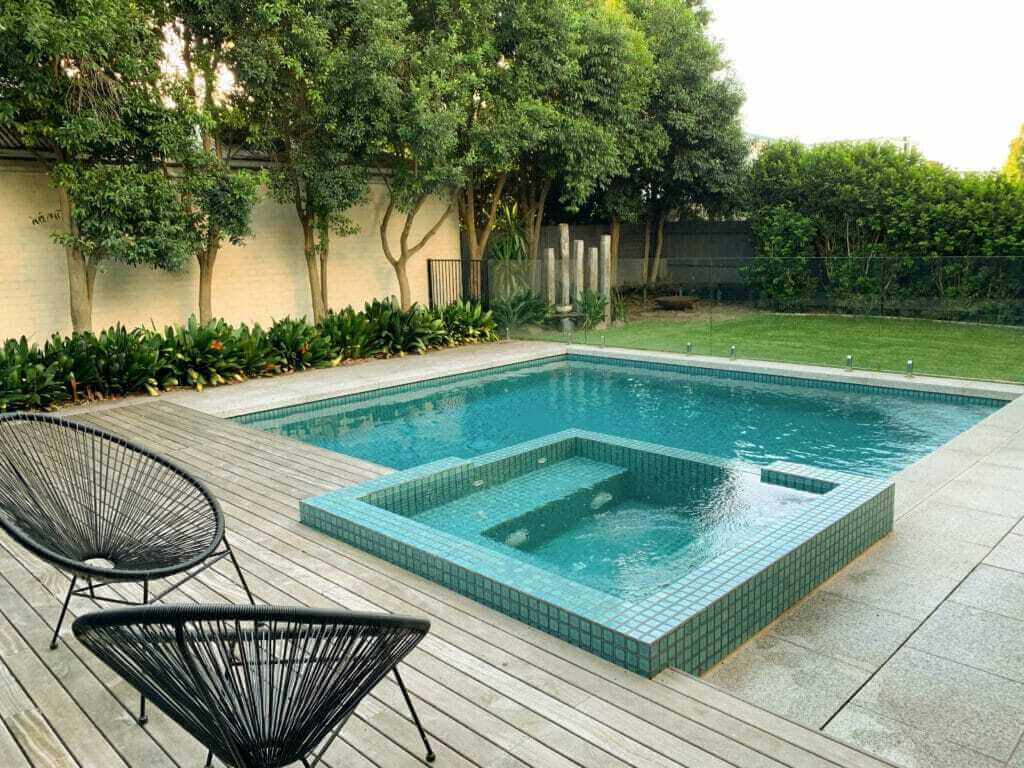
Plants that are simple yet offer unique foliage are suited to this design and complement sleek, modern homes well. Here are some ideal options to give you this look:
- Star Jasmine
- Murraya
- Agapanthus
- Euonymus
Regardless of which types of plants you choose, the ones we’ve mentioned above are all hardy and require very little care once they’re established.
Avoid Placing These Types of Plants Around Your Pool
Pollen Laden Plants
It’s a given that pollen to some degree will blow into your pool but to prevent excessive amounts you should avoid placing these types of plants around your pool. Some leave behind a sticky residue which can be troublesome to clean up.
Plants with Berries, Flowers, or Fruit
Often, these types of plants look nice but are detrimental to the quality of your water, not only that they can stain the surface of your pool. Having these nearby will see you having to clean your pool more often than normally needed. If you want these kinds of plant types in your backyard, position them away from your pool and cut them back when needed to minimise the chances of them affecting your pool.
Plants with Invasive Root Systems
Plants with invasive root systems can wreak havoc on your pool shell, the plumbing, and the paving. Here are some plants you should avoid around your pool:
- Umbrella trees
- Bamboo
- Rubber trees
- Deciduous trees
Give New Plants Time to Settle In
Even though most pool-friendly plants are hardy and require little maintenance, you should still give them time to settle in and get established before you cut back on watering. Take the time to water new plants daily for around a month and if you have planted seedlings make sure they are not exposed to full sunlight throughout the day, otherwise, they will wilt and die. After a few months, they will become self-sufficient and you will only need to water them when there has been no rain for a while.
If You Have a Saltwater Swimming Pool Look For
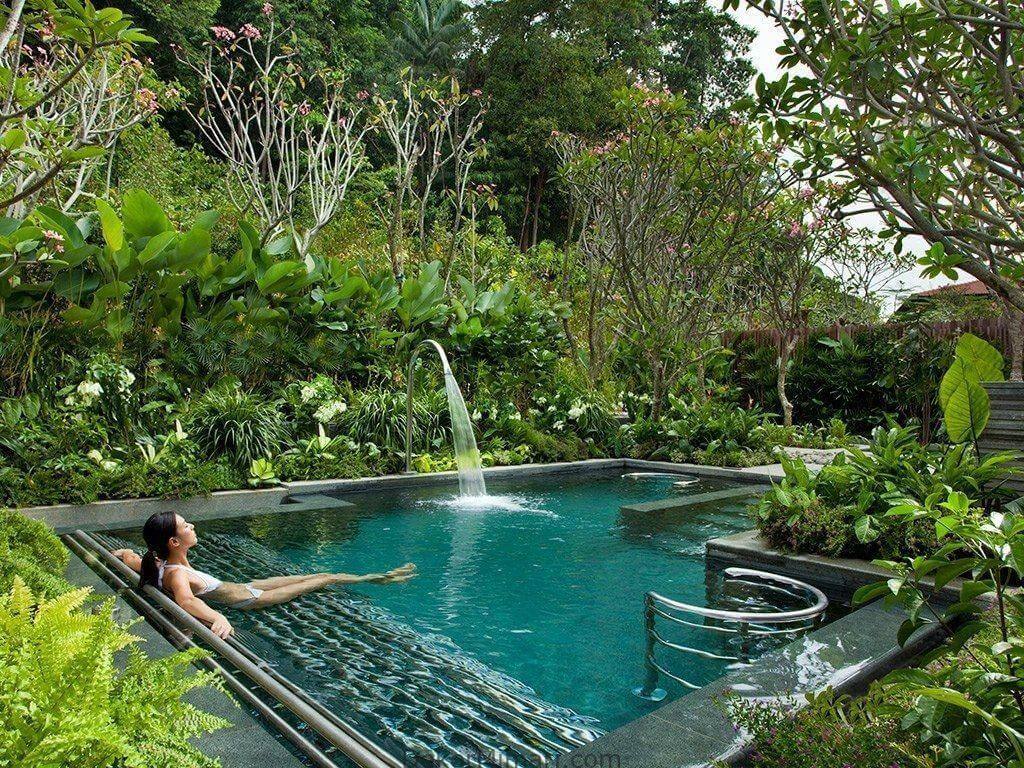
Plants with silvery, waxy, or furry leaves such as coastal banksia, cycads, or yuccas.
If You Have a Traditional Chlorinated Swimming Pool Look For
Plants with large leathery leaves such as acalyphas, potted golden palms, or Erigeron daisy.
With hundreds of pool-worthy plants available, the hardest part is deciding which ones to choose. We have mentioned some popular choices but it’s ultimately up to you which ones go in your pool area. It is best to collaborate with your local nursery provider to pick plants that are going to complement your backyard best.
If you are considering a pool for your place or have any questions, get in touch with our friendly team here at Swimming Pools Brisbane, we are pool specialists and would love to help if we can.
Discover More:–

